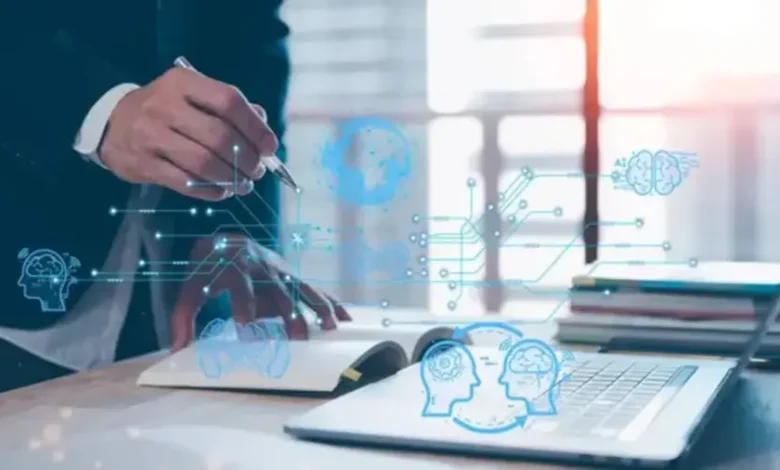The Ministry of Education and Science plans to use artificial intelligence during the examination of school textbooks

The quality of school textbooks plays a key role in shaping the knowledge and outlook of Ukrainian children. They are the foundation of the learning process, helping students master new material, develop critical thinking, and gain important life skills. That is why each textbook must meet the highest standards of content, reliability and scientific correctness.
Unfortunately, cases of significant errors in school textbooks in Ukraine are not isolated. In recent years, numerous inaccuracies, typographical errors, and sometimes distortions of historical facts have been discovered. Some textbooks contained outdated or incorrect information, which misled schoolchildren. For example, concepts were confused in science textbooks, errors occurred in problems in mathematics textbooks, and history textbooks contained incorrect dates or questionable interpretations of events. Due to such errors, the textbooks had to be reissued or separate official clarifications from the Ministry of Education and Culture had to be issued. This indicates the need for a modern system of checking educational literature, which would minimize the human factor and make evaluation more objective.
Artificial intelligence in checking textbooks
Considering these challenges, the Ministry of Education and Science of Ukraine decided introduce artificial intelligence into the process of checking school textbooks. According to Deputy Minister of Education Nadiya Kuzmychova, starting next year, the procedure for creating and evaluating teaching aids will change.
The main innovations include:
- Revision of the requirements for the content of textbooks so that they correspond to modern scientific knowledge and pedagogical standards.
- Implementation of artificial intelligence to check textbooks in order to identify errors, inaccuracies and contradictions in the content.
- Optimizing textbook delivery logistics so that new editions reach schools faster.
The details of how the AI system works have not yet been disclosed, but it is assumed that the technology will analyze the content of textbooks for logical errors, grammatical inaccuracies, historical authenticity and compliance with current curricula.
Why is this important?
The implementation of artificial intelligence in the field of education can significantly improve the quality of educational materials. In developed countries, such technologies are already used to analyze texts, find errors, and improve educational programs. The use of AI will make verification faster, more accurate and less dependent on the human factor.
This approach has a number of advantages:
- Objectivity – computer algorithms can detect errors regardless of the subjective views of individual reviewers.
- Efficiency – the analysis will take place much faster than with a manual check.
- Complexity – the system can simultaneously check large data sets, comparing information with authoritative sources.
What are the possible challenges?
Despite the significant benefits, implementing AI in the textbook review process can have its challenges. One of the risks is the need for proper training of algorithms, because without proper configuration, the system may detect false errors or fail to recognize important nuances. It is also important that artificial intelligence does not completely replace human supervision, as the evaluation of textbooks requires an understanding of context and pedagogical approach.
According to the MES, the introduction of artificial intelligence into the process of checking Ukrainian school textbooks can make textbooks more accurate, more reliable and more useful for students. At the same time, the success of this reform will depend on the correct setting of the system, its integration with expert evaluation, and the constant improvement of verification mechanisms. If everything is implemented properly, Ukrainian schoolchildren will receive higher quality and more reliable educational materials, which will have a positive effect on the level of education in the country.
Questions regarding the qualification of textbook authors
The introduction of artificial intelligence to check school textbooks is an important step towards improving the quality of education. However, a rhetorical question arises: how did you previously ensure the quality of educational materials without the participation of AI?
It would seem that textbooks have always been reviewed by experts responsible for content, relevance to the curriculum, and scientific validity. However, numerous errors in training manuals that have appeared in recent years raise serious doubts about the effectiveness of this system.
When textbooks contain obvious factual inaccuracies, incorrect historical interpretations, or typographical errors, it raises questions about the qualifications of those who create, review, and approve them for publication. Why were these errors not detected at the review stage? Why do textbooks entering schools sometimes contain information that contradicts official education standards?
If artificial intelligence has to be involved to eliminate shortcomings, it means that the existing system of expertise has significant gaps. Can you trust the experts who made these mistakes? Were they competent enough to participate in the creation of educational materials?
This situation makes us think that the problem is not only in the lack of additional verification mechanisms, but also in the general approach to creating textbooks. There is a need not just to automate the analysis process, but to review the system of developing educational materials, to strengthen the requirements for authors and experts who review them. After all, an ideal textbook is not only a text without grammatical errors, but a comprehensive tool that ensures the correct formation of knowledge among schoolchildren.
Therefore, the emergence of AI as a textbook editor is not only a progressive solution, but also an indirect admission that the existing verification system is not working properly. And although new technologies can improve the quality of education, they should not replace human responsibility and professionalism.





